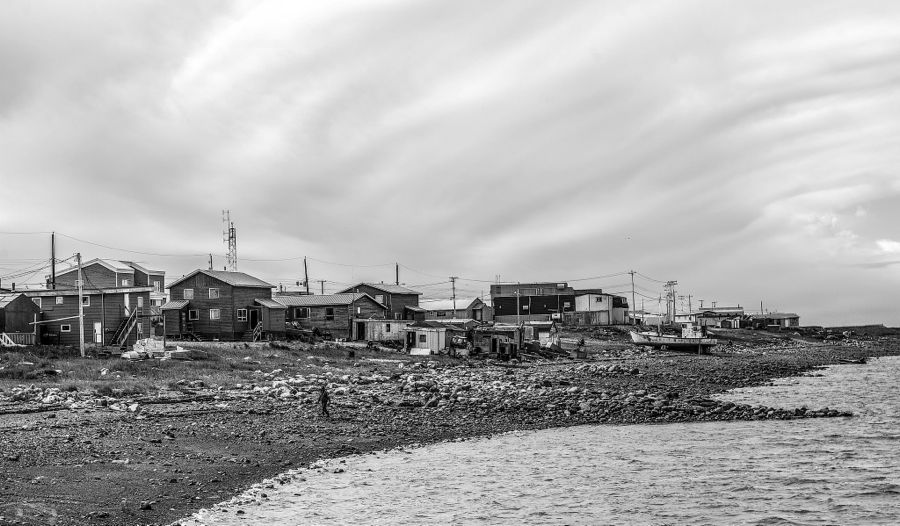Just think what the next generation will be able to do…
Those words of wisdom were shared by the late Inuit elder Mark Kalluak, who marveled at the possibilities provided by digital technologies in the hands of young people in the community of Arviat, which sits on the western shore of Hudson Bay in the Nunavut Territory in Canada. Much of Kalluak's life was devoted to passing along traditional Inuit knowledge to the next generations through the creation of educational curricula.
Kalluak was also the subject of a short film created by filmmaker Eric Anoee, Jr., a lifelong resident of Arviat and one of the founders of the Arviat Film Society. The collective has been embracing the use of digital video technologies to create films that document and share Inuit language and culture, and is the embodiment of what Kalluak had been supporting prior to his passing.
In the video titled “Tunngavik & Uqaujjiji”, Kalluak shares his thoughts about being a community leader and advisor explaining his role using the Inuit tools ulu and a snow knife to illustrate his ideas.
Since 2010, the Film Society has been engaging the youth that live in the Inuit community of Arviat. Through video training and mentoring, the Film Society hopes to encourage a new generation of videomakers with a special emphasis on providing opportunities for professional development. Many of the topics explored by the filmmakers directly relate to the honoring traditional way of life, as a way to document and share their culture with local and global audiences.
The Film Society has also recently collaborated with Isuma TV to create a local television station to help distribute these works.
Recently, Rising Voices interviewed Anoee to learn about why he started to create videos about his community, and his hopes for their impact.
Rising Voices (RV): What inspired you to begin making videos?
Eric Anoee, Jr. (EA): There are good Nunavummiut filmmakers such as Zacharias Kunuk who helped me realize that Inuit can be filmmakers and films can be done in Inuktitut. Inuit Broadcasting Corporation producers such as Peter Tapatai also gave me inspiration as a youth that it is okay to do films and have confidence in one’s self while in and out of front of a camera.
My brother also exposed me to a camcorder, he owned one when I was a youth and it showed me that he had many chores or work revolving around making films such as planning for a shoot, reviewing footage and showing his work to my family.
Elders may be the most important inspiration as they have told me to keep doing my work, that the work is important. They have said they will not always be around and their knowledge will be lost if we do not document and share it in film. Elders give me drive to keep on working in films also.
RV: What has been the most challenging aspect of making videos?
EA: Challenges include being technically sound and putting idea into filming technique. There are also not many avid filmmakers in the north to share interest, but that is starting to change as local youth start to get exposed to it and getting interest. Also, trying to make a living out of filmmaking is challenging especially for one who is emerging and one who has limited exposure and experience in dealing with broadcast realm and distribution.
RV: What has been the most rewarding aspect of making videos?
EA: One of the reward aspects include sharing your work to others in your community. Engaging youth to filmmaking is another rewarding aspect, especially when you are engaged and have interest, then seeing their work in film. In my day job also, I have the opportunity to help produce educational resources in film where my contributions are used in schools in Nunavut. Another reward is that filmmaking gives you opportunity for continual learning to be better and being more aware of making work that is important.
This video produced by Anoee explores the work of Search and Rescue team members. Here Anoee interviews Daniel Alareak, who shares information about the tools that they use in their work.
RV: What message do you hope to send with your videos?
EA: I hope to send many messages. Some message include: the importance to be proud of your own identity and culture. I also hope that film can be a tool to enhance and make awareness of our dying culture and language as we are exposed to external forces in modern media/tv that is driving our own ways into extinction.
RV: What advice do you have for aspiring indigenous videomakers?
EA: Some advice I can share to aspiring video makers include: to think about making films as often as possible and keep shooting films when opportunity comes and that way, you will grow and improve as a filmmaker. Video can be a form of entertainment, education, and a way to portray your story to others. It is okay to make mistakes as it is often the only way to learn. Keep at it and talk about it with others, show your work and ask for feedback, both good and bad. Use the web to seek help and learn online, there are many sites that can keep your interest going and give you ideas to make good films and continually learn and improve. The web is also the best mode to broadcast your work.









1 comment